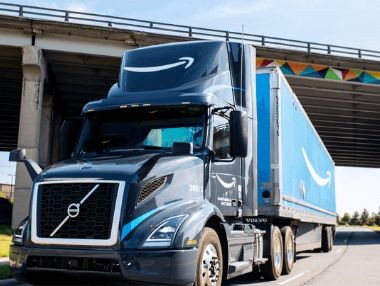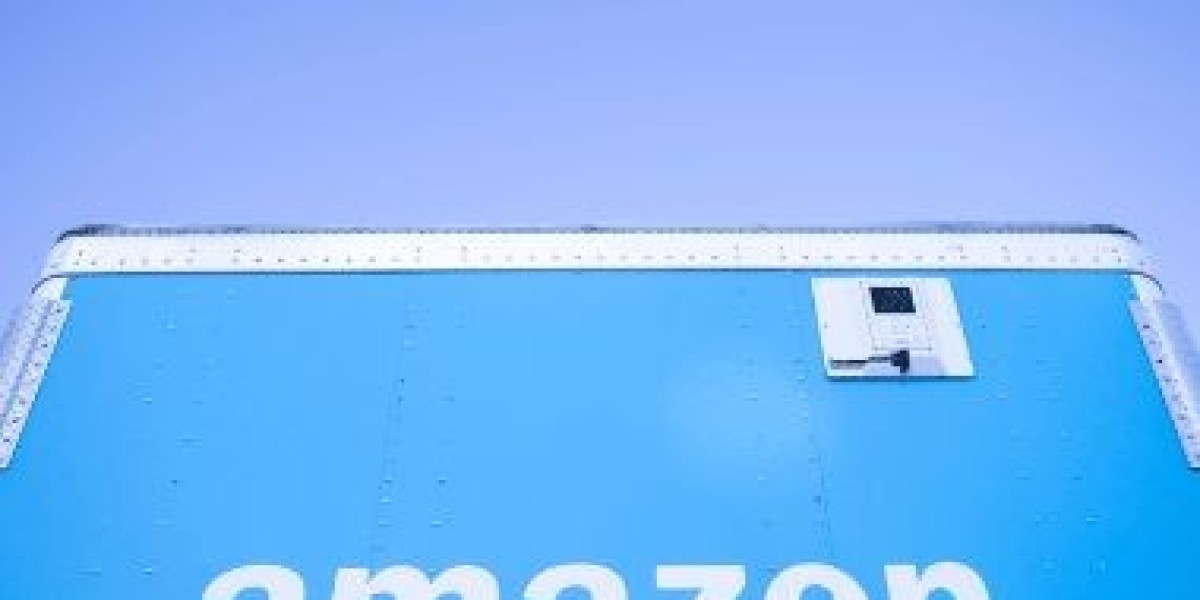According to a B2B International Survey, more than half (57%) of shippers conduct research and learning on freight carrier websites. That is why we are thrilled to introduce the Amazon Freight Newsroom Blog. You have requested that we communicate more frequently about Amazon Freight, our products, promotions, people, and the industry.
We plan to accomplish this through the Amazon Freight Newsroom. This is what you'll find. insights from our professionals Various factors, such as weather, high holiday season, transportation technology developments, and supply chain challenges, might disrupt operations. Change is constant for you, and the one certainty is that a shipper's difficulties today will differ from those tomorrow. We are here to assist you make sense of the ambiguity and provide guidance.
Amazon employs industry specialists in areas like as logistics, transportation technology, packaging, and safety. You'll hear their voices on this blog to help you understand trends and changes. One major topic we'll discuss is sustainability. We understand that many of you and your customers are focused on it, as are we. Transportation is an important part of Amazon's business operations and our ambition to achieve net-zero carbon emissions by 2040.
We are improving and modernizing our transportation network through technical breakthroughs, efficiency gains, and alternative solutions that allow us to deliver to our clients more sustainably. For example, as of 2021, we've bought over 3,000 compressed natural gas cars and are purchasing millions of gallons of renewable natural gas derived from waste streams to power them.
News about what's happening at Amazon Freight We started more than five years ago building many of our transportation capabilities ourselves. Since then we’ve grown our network and customer offerings. Today, we have more than 50,000 carriers and trailers serving shippers across the U.S. As we continue to evolve, there will be more news to share with you. For instance, we’ll have announcements about new lanes opening up, integrations with supply chain organizations, and product enhancements that you’ll want to know about. On this blog we want to keep you informed on the latest so you can make sound decisions in selecting a freight provider.
We also want to let you know when we’re on the road and may see you. Amazon Freight visits events around the country, speaking about the industry and explaining how we can help you. Stay tuned because we hope to meet you out there. Amazon Freight values not only the items we create, but also the people who make them. From our leaders to our front line builders, we want you to see the individuals who make Amazon Freight tick. We come from all corners of the freight sector with varied experiences to produce a solution that FreightWaves has acknowledged for its creativity and disruption.
Your voice

Amazon Freight is customer obsessive for a reason: to know what you need and then deliver for you and please you. For you as shippers, you need a partner who is reliable, on-time, and flexible and offers it all at an affordable fee. But what you experience every day can have an impact on your freight needs. Whether you’re a family-owned firm shipping sporadically or a larger enterprise with hundreds of cargoes per week, the intricacies of the supply chain keep you on your toes. That’s why we want to hear what you're seeing as a shipper so we can talk about it on this blog.
What is Amazon's Partnered Carrier Program?
The Amazon Partnered Carrier Program is a shipping service tailored specifically to Amazon FBA businesses. Amazon offers this service to help you transport your products efficiently and economically. This program allows you to access negotiated shipping rates with various carriers, which simplifies logistics and order fulfillment. The program is adaptable and can fulfill diverse shipping needs. It provides options for small parcel deliveries, less-than-truckload (LTL) shipments, and full-truckload (FTL) shipments. Small parcel deliveries are appropriate for lightweight and solitary parcels, whereas LTL and FTL solutions handle larger shipments that may not fill a complete vehicle or require an entire truck, respectively.
In the following section, we will take a closer look at these options.
Amazon Partnered Carrier Options Here’s a brief explanation of the different shipping options within the “Amazon Partnered Carrier Options” program:
Small Parcel Deliveries Small parcel deliveries (SPDs) involve packaging individual units in separate boxes, each labelled for delivery. These shipments, typically smaller in size, are commonly dispatched through carriers such as DHL, UPS, FedEx, or local postal services.
When using a partnered carrier for small-parcel delivery (SPD), the shipment limit is 200 boxes per transaction. However, if a non-partnered carrier is selected for SPD, the shipment limit is raised to 500 boxes per transaction. This distinction in limits enables sellers to select carriers based on the size of their small-parcel shipments.
Less-than-truckload (LTL)
LTL shipping is a method in which several small shipments from different companies are combined into a single truck. It is appropriate carrying cargo weighing between 150 and 15,000 pounds and does not require a full vehicle. The advantages include cost-effectiveness, less chance of damage, a lower carbon footprint, and flexible scheduling.
Full Truckload (FTL)

FTL shipping entails loading an entire trailer with one shipment. It’s faster and more secure than LTL as there are fewer stops. FTL is ideal for larger shipments that can fill a trailer, offering increased efficiency, better visibility, and fewer touchpoints during transit.
What are the benefits of the program?
The Amazon Partnered Carrier Program (PCP) provides several benefits to FBA sellers, including
PCP offers discounted shipping rates, which is a key benefit. Amazon negotiates discounted rates with its partnered carriers, such as UPS, FedEx, and DHL, which can significantly reduce your shipping costs. These rates are often lower than what you would get by booking directly with the carrier.
Convenience:
PCP integrates seamlessly with Seller Central. You can buy shipping labels and track your shipments right from your account, eliminating the need to manage multiple accounts or log in to different websites.
Fast Transit Times:
Affiliated carriers have experience working with Amazon and are familiar with its fulfillment centers. This suggests that they can typically deliver your shipments faster than non-partnered carriers.
Automated Monitoring:
With PCP's real-time tracking, you can always be aware of the whereabouts and anticipated arrival time of your shipments.
Streamlined Labeling:
When shipping with PCP, you only need to create one label for the entirety of your package. This will eliminate the need for you to label each individual box, saving you time and effort.
Pickup and Delivery:
Allied carriers facilitate the shipping of your inventory to Amazon by providing pickup and delivery services. The carrier will come to your location to pick up your shipment at a time that you have scheduled. The cancellation timeframe for Less-Than-Truckload (LTL) and Full-Truckload (FTL) carriers is within one hour of approval of the estimated fees. To cancel a shipment, navigate to the shipping queue and find the specific shipment. Click on “Work on shipment” and select “Provide details.” Choose “Void charges.” It's worth noting that cancelling a shipment does not automatically waive the fees. rges." It's vital to understand that fees are not always waived when a shipment is canceled. Follow the instructions carefully to make sure there are no scheduled pickups and that no fees will be incurred. Using a proactive strategy is essential to successfully manage cancellations in the Amazon Partnered Carrier Program.
In summary
For Amazon sellers, the Amazon Partnered Carrier Program expedites shipment by offering affordable prices and easy procedures. It's a useful tool for economical and successful logistics.



